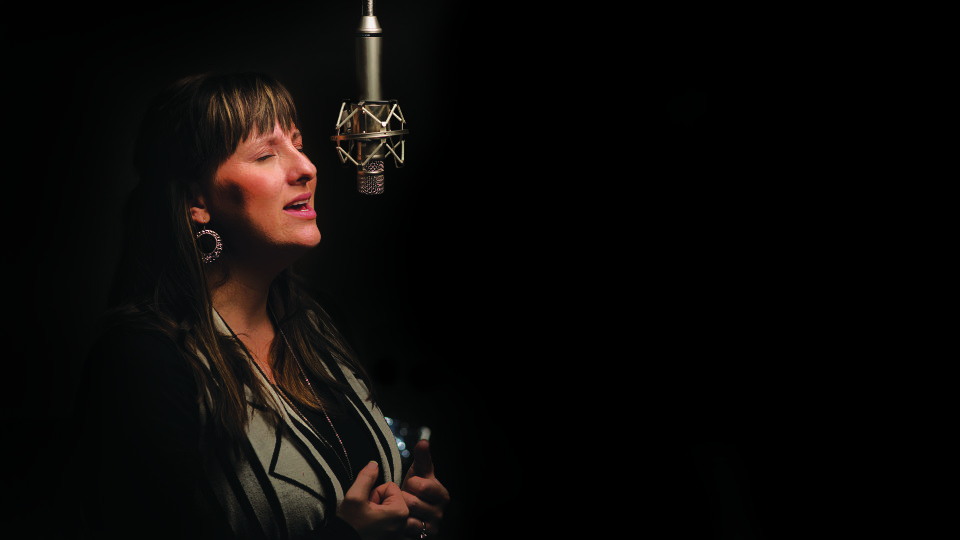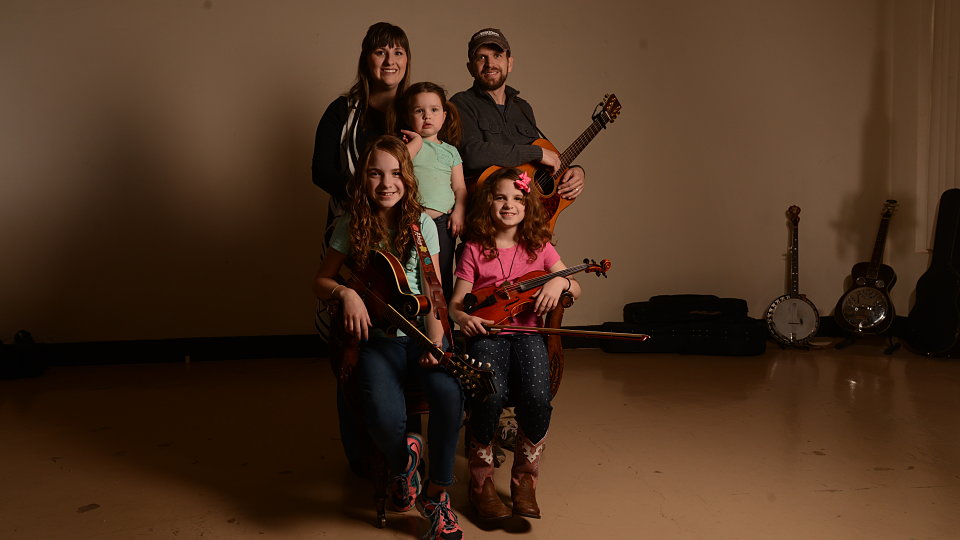Reflections of gratitude
Stephanie Ellison sings with a voice that blends country and contemporary styles into a beautiful melody. Where the music soothes, however, the lyrics haunt:
Stolen innocence, bleeding and blind. Nothing but a broken shell, Lingering hope inside. I can hear him calling,
Calling out my name, As he hears me whisper, Lord, I need your change. I am broken, but don’t throw me away. He is going to fix and make me new today.
“One of the reasons I wrote that,” she explained, “is because my whole life – years and years of my life – I just felt like this broken, empty vessel, and I felt like it was impossible to feel loved, and I felt like it was impossible to truly accept it, really, to embrace it, to accept it, that anyone would really want to love me.”
For Ellison, the music isn’t an outgrowth of an artistic imagination. It’s a product of her memory. Now 30, she remembers her childhood like no child should: in brief, distant, painful glimpses.
• I was born into a family of poverty. My mom was a prostitute and drug addict. My dad was in prison most of my life. There was a lot of drug use, alcoholism, abuse and things like that in my life growing up.
• I was the youngest of four children. We moved a lot growing up. We lived in cars, tents, motels, trailers and lots of different places. I moved about nine times a year and really relied more on the school system to help me...mainly because there was food.
• Living in an environment of prostitution and drug addicts, there were men in and out, and there were dark situations.
• We would have to stay up, looking out windows, and make sure that if cars were going by, that they weren’t going to stop, because every car that went by, according to my mom, and whoever she was with, was the people that were going to murder us.
• My mom was also bipolar and schizophrenic, and she, because of that, had trouble controlling her anger. She would use physical violence on all of us children in order to make things happen the way she wanted them to happen.
Despite the bitterness of her childhood, though, Ellison also has seen sweet moments, too, because of good people who came into her life, including those at Buckner. At age 4, she was placed briefly in Buckner foster care – and safety.
“We were living in the back of a truck, and my dad had just gone to prison,” she recalled. “My mom just couldn’t handle it. She had gone to a food stamp office, and they told her about a program that Buckner had for helping parents get on their feet. She placed all four of us. I know that I went with a foster family.”
The respite ended when she was reunited with her mom. Years of additional abuse continued, including death threats. Finally, after a violent encounter with her mother, Ellison, then 15, reached a turning – or perhaps breaking – point in her life when she heard God speak to her.
“I remember just laying there that night, wondering, ‘Why? Why am I here? Why do I deserve to live?’ I remember going into the bathroom later, after I had laid there, kind of self loathing, feeling very depressed,” she remembered. “And I walked into the bathroom and held a razor blade to my wrist. I almost decided to take my life.
“But there was just something in me that – that kept saying, ‘I’m not finished with you yet. You’re not finished. This isn’t it for you. Don’t give up,’” she said. “Honestly, I do believe it was God. I also believe it was just the voices of tons of people that spoke life into me over the years.”
Ellison went to bed that night, and the next day, she found her mom and one of her friends in their house in a drug-induced stupor with needles in their arms and toes.
“I just looked at them, and I was disgusted,” Ellison said. “Something clicked in me. I didn’t know what I was going to do, but I just said, ‘I’m finished. I’m done.’”
She made good on her promise; she walked away and never returned home. At 16, she was emancipated from her family.
“I slept on other people’s couches for a little while until I became an emancipated adult and could buy a little trailer and a car. I worked three jobs and went to high school.”
Recently, while writing a book about her life, she’s reflected on all the different circumstances that have led her to this point in her life. Despite all the adversity, she could also identify the sweet moments.
“There were always certain people there to help me see that life matters and that there’s hope,” Ellison said. “It doesn’t matter if things are hard, you can overcome all circumstances. It all boils down to the people. I always looked for light and looked for people who were going to be positive and speak light into my life instead of death. And there were a lot of people. Buckner is one of them.”
That appreciation led Ellison, now a wife, mother of four, and a photographer in Abilene, Texas, to call Buckner to say thank you.
“If you hadn’t provided a place for me to live, food and clothing, then there’s no telling where I would be,” she said.
For many at Buckner, her call served as a reminder that the difference they make may be short, but the positive implications can last a lifetime.
“I realized I wanted to show gratitude by just calling and saying, ‘Thank you,’” she added. “There are several children you guys work with that I’m going to say thank you on behalf of all of them because you never know what life you’re saving. You never know.”





